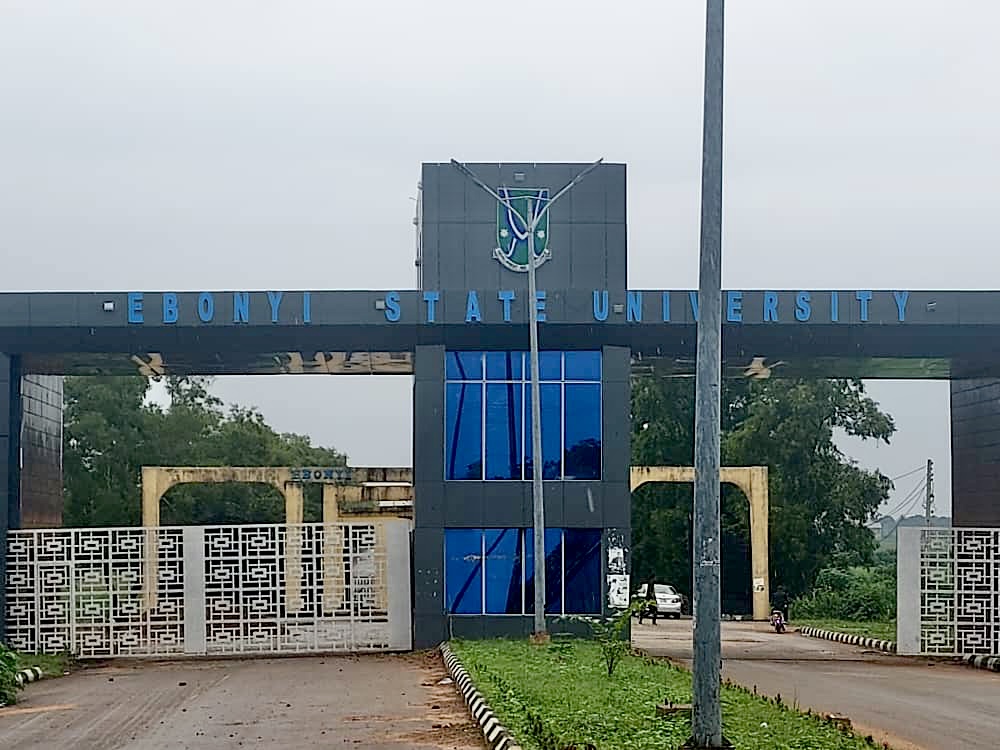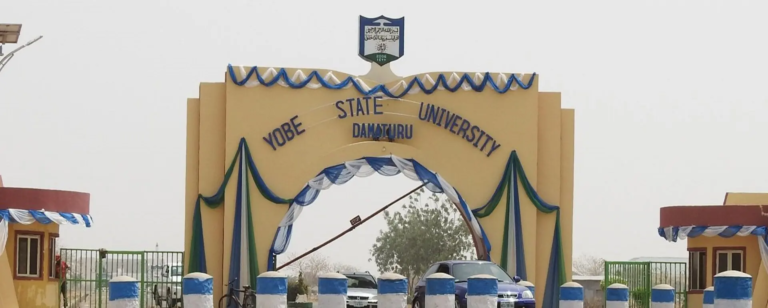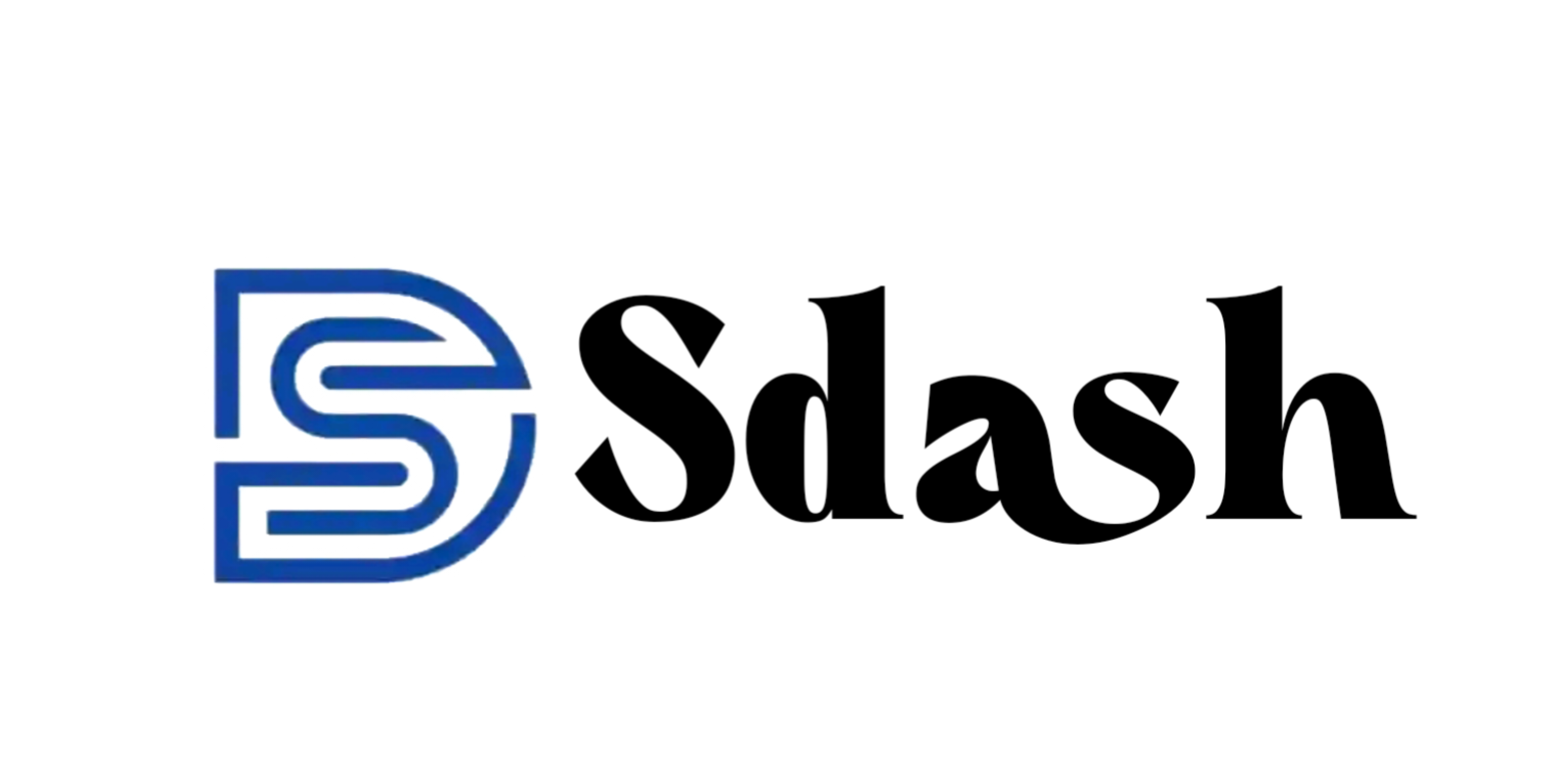EBSU Ebonyi State University Everything you Need to Know

EBSU Ebonyi State University
EBSU Ebonyi State University Everything you Need to Know the history of Ebonyi State University (EBSU) dates back to 1987, when the Military Administration of Anambra State established a Pre-Science school at the Abakaliki campus of Anambra State University of Technology (ASUTECH). In 1991, Enugu State was created out of the old Anambra State, and the Abakaliki campus of ASUTECH was inherited by Enugu State University of Science and Technology (ESUT). In 1992, the College of Medicine was added to the Abakaliki campus.
At the creation of Ebonyi State in 1996, the Abakaliki campus of ESUT was upgraded to Ebonyi State University College. The University College started academic activities in October 1996 with six faculties: Arts and Humanities, Education, Law, Management Sciences, Natural Sciences, and Social Sciences.
In 1999, Ebonyi State University was officially established by the Ebonyi State Government. The University has since grown to become one of the leading universities in Nigeria, with over 20,000 students and over 1,000 academic staff.
EBSU is divided into four main campuses:
- The Permanent Site Campus, which is the main location of the institution.
- The Presco Campus, which houses the Faculties of Natural Sciences and other sciences.
- The Ishieke Campus, which houses the Faculty of Agriculture.
- The College of Medicine Campus, which houses the Faculty of Medicine.
EBSU offers a wide range of undergraduate and postgraduate programs in the Arts, Humanities, Sciences, Social Sciences, Law, Education, Medicine, and other disciplines. The University is also noted for its research activities, and its faculty members have published extensively in peer-reviewed journals and books.
EBSU has produced many notable alumni, including politicians, business leaders, academics, and professionals in various fields. The University is committed to providing its students with a high-quality education and to producing graduates who are ready to contribute to the development of Ebonyi State and Nigeria as a whole.
Is EBSU on strike 2023?
As of today, there is no ongoing strike at Ebonyi State University (EBSU). Academic activities are ongoing as scheduled.
However, it is important to note that academic strikes are not uncommon in Nigeria. In recent years, there have been several strikes by the Academic Staff Union of Universities (ASUU), which represents university lecturers in Nigeria. These strikes have often been caused by disagreements between the government and ASUU over issues such as salaries, funding for universities, and the working conditions of lecturers.
It is possible that ASUU or other unions at EBSU could go on strike in the future. If you are a student or staff member at EBSU, it is important to stay informed about the latest news and developments. You can do this by following the university’s website and social media pages, as well as by signing up for the studentsdash mailing list.
How much is the school fees for EBSU?
The school fees for Ebonyi State University (EBSU) for the 2023/2024 academic session is as follows:
| Category | School Fees |
|---|---|
| New Students (Indigenes) | ₦160,000 |
| New Students (Non-Indigenes) | ₦210,000 |
| Returning Students (Indigenes) | ₦104,000 |
| Returning Students (Non-Indigenes) | ₦106,000 |
What is the cut-off mark for all courses in Ebonyi State University?
The general cut-off mark for all courses in Ebonyi State University (EBSU) for the 2023/2024 academic session is 140. However, some courses and faculties have higher cut-off marks.
Here is a list of the cut-off marks for some of the most popular courses in EBSU:
- Medicine and Surgery: 260
- Nursing Science: 240
- Pharmacy: 230
- Law: 220
- Engineering: 210
- Mass Communication: 200
- Accounting: 180
- Business Administration: 170
- Economics: 160
- Political Science: 150
Please note that these cut-off marks are subject to change at any time by the university management. It is important to check the university’s website for the most up-to-date information.
In addition to the JAMB cut-off mark, students must also meet the specific requirements for their chosen course of study. These requirements can be found on the university’s website.
What are the course offered in Ebonyi State University?
Ebonyi State University (EBSU) offers a wide range of courses at the undergraduate and postgraduate levels. The courses are offered in the following faculties:
- Agriculture and Resource Management
- Arts
- Basic Medical Sciences
- Clinical Medicine
- Education
- Engineering
- Law
- Management Sciences
- Science
- Health Science and Technology
- Social Sciences
Here is a list of some of the courses offered in each faculty:
Faculty of Agriculture and Resource Management
- Agricultural Economics and Extension
- Agricultural Science and Education
- Agriculture
- Animal Science
- Applied Microbiology
- Applied Biology
- Biochemistry
- Biotechnology
- Botany
- Crop Production and Landscape Management
Faculty of Arts
- English Language and Literature
- History and International Relations
- Philosophy and Religion
- Religious and Peace Studies
- Theatre Arts
Faculty of Basic Medical Sciences
- Anatomy
- Biochemistry
- Microbiology
- Physiology
Faculty of Clinical Medicine
- Medicine and Surgery
- Nursing Science
- Pharmacy
Faculty of Education
- Business Education
- Education and Biology
- Education and Chemistry
- Education and Computer Science
- Education and Economics
- Education and English Language
- Education and Integrated Science
- Education and Mathematics
- Education and Physics
- Health Education
- Guidance and Counseling
Faculty of Engineering
- Civil Engineering
- Computer Engineering
- Electrical/Electronics Engineering
- Mechanical Engineering
Faculty of Law
- Law
Faculty of Management Sciences
- Accountancy
- Banking and Finance
- Business Administration
- Insurance
- Marketing
Faculty of Science
- Applied Mathematics
- Computer Science
- Geology
- Geophysics
- Mathematics
- Physics
- Statistics
Faculty of Health Science and Technology
- Medical Laboratory Science
- Nutrition and Dietetics
- Public Health
- Radiography
Faculty of Social Sciences
- Economics
- Mass Communication
- Political Science
- Psychology
- Sociology and Anthropology
Please note that this is not an exhaustive list of all the courses offered in EBSU. For more information, please visit the university’s website.
How many faculties are in EBSU?
There are 10 faculties in Ebonyi State University (EBSU):
- Faculty of Agriculture and Resource Management
- Faculty of Arts
- Faculty of Basic Medical Sciences
- Faculty of Clinical Medicine
- Faculty of Education
- Faculty of Engineering
- Faculty of Law
- Faculty of Management Sciences
- Faculty of Science
- Faculty of Health Science and Technology
- Faculty of Social Sciences
What is the direct entry requirement for EBSU?
To qualify for the EBSU Direct Entry, candidates must possess either an OND, HND, NCE, A-Level or a recognized diploma certificate from a reputable institution. Additionally, candidates must have five credit passes in O’ Level subjects, including English and Mathematics, at not more than two sittings.
Can I apply for direct entry without jamb?
Yes, you can apply for direct entry into Ebonyi State University (EBSU) without JAMB. However, you must meet the eligibility requirements for direct entry admission, which include having any of the following qualifications:
- A National Diploma (ND) with a minimum of lower credit pass from a recognized institution.
- A Higher National Diploma (HND) with a minimum of lower credit pass from a recognized institution.
- A National Certificate of Education (NCE) with a minimum of merit pass from a recognized institution.
- A Bachelor’s degree from a recognized institution.
In addition to the above requirements, you must also meet the specific requirements for your chosen course of study. These requirements can be found on the university’s website.
To apply for direct entry admission into EBSU, you must visit the university’s website and download the direct entry application form. You will need to complete the form and submit it along with the following documents:
- Copies of your academic credentials
- A copy of your birth certificate
- A copy of your state of origin certificate
- A recent passport photograph
You will also need to pay a non-refundable application fee.
After submitting your application, you will be invited for a screening interview. If you are successful in the interview, you will be offered admission into the university.
Please note that the direct entry admission process for EBSU is subject to change at any time. It is important to check the university’s website for the most up-to-date information.
If you have any questions drop them in the comment section






